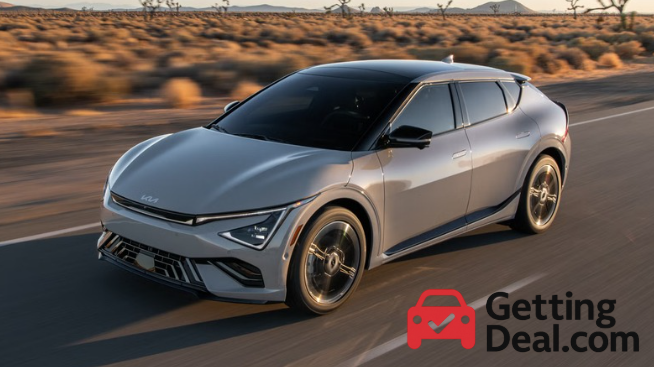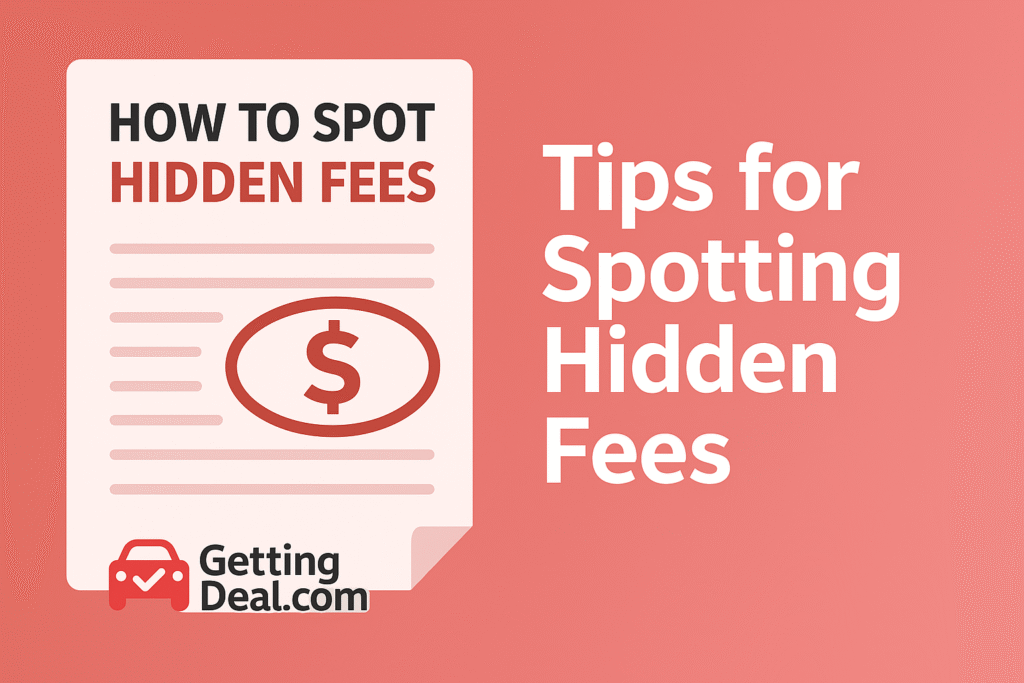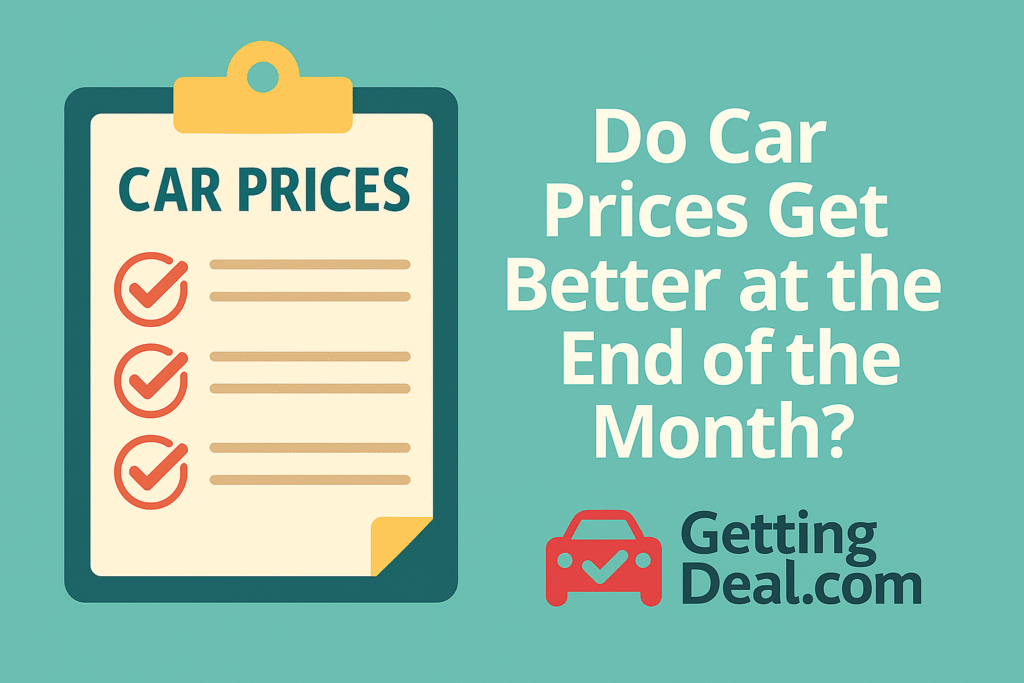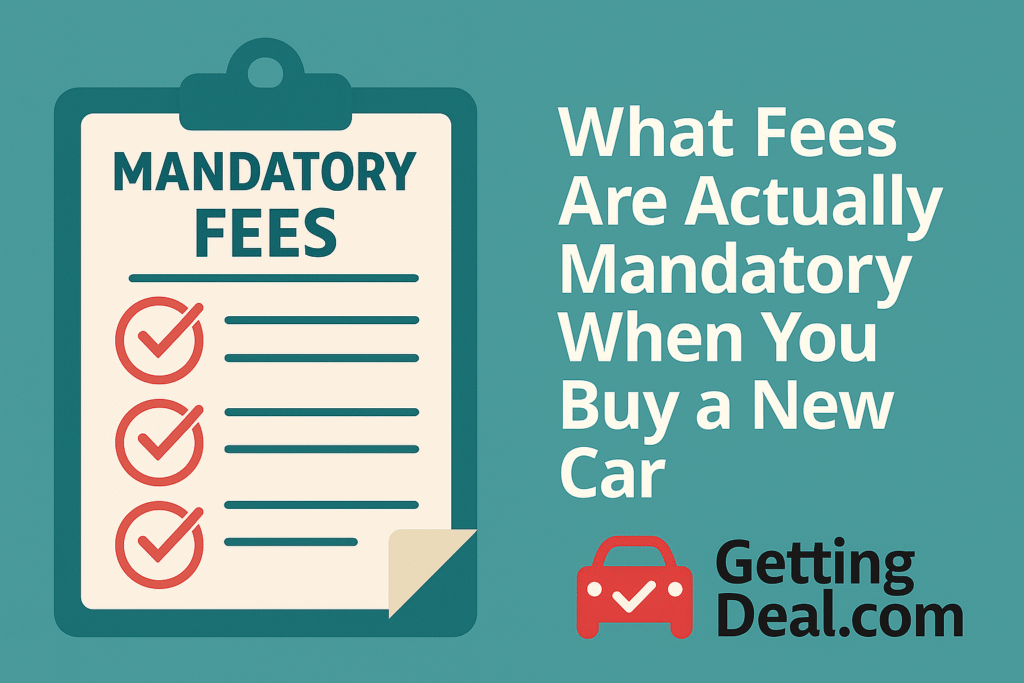When you’re ready to get a new car, there’s a question you’ll be asked almost immediately at the dealership:
“Are you thinking of leasing or financing?”
If you don’t have a clear answer, you’re not alone. Many car buyers aren’t quite sure which option is better — and the truth is, it depends. Both leasing and financing have pros and cons depending on your lifestyle, budget, and how long you plan to keep the vehicle.
In this post, we’ll break down the key differences to help you make the best decision for your situation — and we’ll explain how GettingDeal.com can help you compare both options easily and for free.
1. How Long Do You Want to Keep the Car?
This is the biggest deciding factor.
- Leasing is ideal if you want a new car every 3 to 4 years. You’re essentially renting the car for a fixed term and returning it when the lease is up. You avoid the hassle of resale, and you’re always driving a relatively new vehicle.
- Financing (buying) makes more sense if you plan to keep your car long-term. Once the loan is paid off, the car is yours — and you can drive it for years without monthly payments.
TL;DR:
- Short-term? Lease.
- Long-term? Finance.
2. Monthly Payment: Lower for Lease, Higher for Finance
If you’re on a budget or want to keep your monthly expenses predictable, leasing often results in lower monthly payments compared to financing the same vehicle. That’s because you’re only paying for the portion of the car’s value that you use during the lease term — not the full value of the car.
Here’s a quick comparison example:
| Term | Lease | Finance |
|---|---|---|
| Monthly Payment | $470 | $680 |
| Term Length | 36 months | 60 months |
| Total Cost Over Term | ~$17,000 | ~$40,800 |
With leasing, your monthly payments are lower, but you won’t own the car. With financing, you’ll eventually own the vehicle — but pay more each month.
Important:
If you plan to buy the car at the end of a lease, that cost is added on later — so in the long run, financing may be cheaper if you keep the car for a long time.

3. Accidents and Resale Value
Here’s a factor most people don’t consider: accidents.
If you finance a vehicle and it gets into an accident — even a minor one — it can take a big hit on resale value. When you try to trade it in or sell it later, you may get thousands less.
On the other hand, if you lease, you don’t have to worry about resale value. As long as the car is returned within normal wear and tear (and within mileage limits), you just hand it back to the dealership and walk away.
This makes leasing a safer choice for people who:
- Drive in high-traffic areas where fender benders are common
- Have newer drivers in the household
- Don’t want to deal with trade-ins
4. Flexibility and Commitment
Leases are typically harder to break than a finance contract. If you decide to end a lease early, you may face heavy penalties.
With financing, while you’re committed to the loan, you have more flexibility. You can:
- Sell the car anytime
- Trade it in
- Pay off the loan early without major penalties
So if you expect a major life change — like moving, changing jobs, or starting a family — financing might offer more long-term freedom.
5. Wear and Tear, Mileage Limits
Leasing usually comes with mileage restrictions, like 16,000–24,000 km per year. If you exceed that, you’ll pay for it — sometimes 10–20 cents per extra kilometer.
You’ll also be expected to return the car in good condition. Excessive wear and tear (scratches, dents, tire damage) can result in additional charges.
Financing doesn’t have these restrictions. You can drive as much as you want, modify the car, or put it through tough conditions without worrying about penalties — because it’s yours.
6. Taxes and Business Use
If you’re self-employed or using the car for business purposes, leasing can have tax advantages. You may be able to write off part (or all) of your lease payments, depending on how the vehicle is used.
Always speak to a tax professional to understand what applies to your situation — but it’s worth considering.
Still Unsure? Let GettingDeal.com Help
Making the right choice isn’t always easy. Dealerships will often steer you toward whatever helps their monthly targets — not what’s best for you.
At GettingDeal.com, we help you compare lease vs finance offers across multiple dealerships — without pressure, spam calls, or time-consuming appointments.
✅ See the full breakdown of costs
✅ Compare total price, not just monthly payment
✅ Understand what you’re really signing
✅ All done for free
Final Thoughts
There’s no one-size-fits-all answer to whether you should lease or finance your next car. But understanding the trade-offs can save you thousands of dollars — and a lot of regret.
In general:
- Lease if you want flexibility, lower payments, and drive less.
- Finance if you want to own the car and drive it for 5+ years.
And if you want the best deal without spending weekends at dealerships?
👉 Get started at GettingDeal.com




